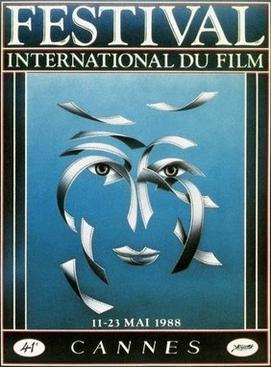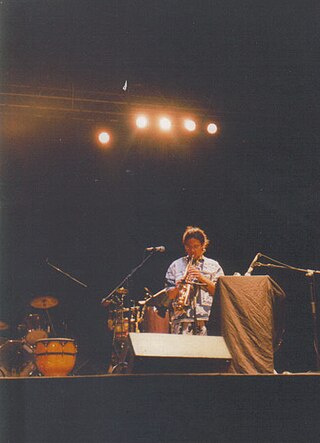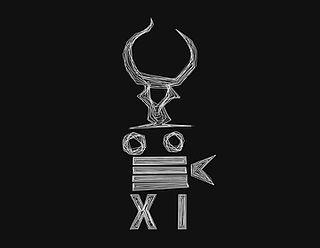Raymond Rajaonarivelo | |
|---|---|
 | |
| Born | 1949 (age 74–75) Antananarivo, Madagascar |
| Nationality | Malagasy |
| Occupation | Film director |
Raymond Rajaonarivelo (born 1949) is a Malagasy film director. [1]
Raymond Rajaonarivelo | |
|---|---|
 | |
| Born | 1949 (age 74–75) Antananarivo, Madagascar |
| Nationality | Malagasy |
| Occupation | Film director |
Raymond Rajaonarivelo (born 1949) is a Malagasy film director. [1]
Raymond Rajaonarivelo was born in Antananarivo in 1949. He studied filmmaking at the University of Montpellier and at the University of Paris. [2] Though living on the outskirts of Paris, he returns to Madagascar for filming. [3]
In the 1970s Rajaonarivelo made two Malagasy short films. [2] His debut feature film, Tabataba (1988), told the story of a village in the 1947 Malagasy Uprising. It was the first Malagasy film to be shown at the Cannes Film Festival, where it won the 1988 Audience Award. It also won the Jury award at the 1989 Taormina Film Fest, and first feature award at the 1989 Carthage Film Festival. [4]

The highly diverse and distinctive music of Madagascar has been shaped by the musical traditions of Southeast Asia, Africa, Oceania, Arabia, England, France and the United States over time as indigenous people, immigrants, and colonists have made the island their home. Traditional instruments reflect these widespread origins: the mandoliny and kabosy owe their existence to the introduction of the guitar by early Arab or European seafarers, the ubiquitous djembe originated in mainland Africa and the valiha—the bamboo tube zither considered the national instrument of Madagascar—directly evolved from an earlier form of zither carried with the first Austronesian settlers on their outrigger canoes.

The Malagasy Uprising was a Malagasy nationalist rebellion against French colonial rule in Madagascar, lasting from March 1947 to February 1949. Starting in late 1945, Madagascar's first French National Assembly deputies, Joseph Raseta, Joseph Ravoahangy and Jacques Rabemananjara of the Mouvement démocratique de la rénovation malgache (MDRM) political party, led an effort to achieve independence for Madagascar through legal channels. The failure of this initiative and the harsh response it drew from the Socialist Ramadier administration radicalized elements of the Malagasy population, including leaders of several militant nationalist secret societies.

The valiha is a tube zither from Madagascar made from a species of local bamboo; it is considered the "national instrument" of Madagascar. The term is also used to describe a number of related zithers of differing shapes and materials.

Eusèbe Jaojoby, commonly known by his surname Jaojoby, is a Malagasy composer and singer of salegy, a musical style of northwestern Madagascar. Critics consider him to be one of the originators of the modern salegy style that emerged in the 1970s, and credit him with transforming the genre from an obscure regional musical tradition into one of national and international popularity. Jaojoby also contributed to the creation of two salegy subgenres, malessa and baoenjy. Jaojoby has been called the most popular singer in Madagascar and the Indian Ocean islands, and is widely referred to as the "King of Salegy". His success has earned him such honors as Artist of the Year in Madagascar for two consecutive years (1998–1999) and the role of Goodwill Ambassador for the United Nations Population Fund in 1999.

The culture of Madagascar reflects the origins of the Malagasy people in Southeast Asia, East Africa and Oceania. The influence of Arabs, Indians, British, French and Chinese settlers is also evident.
Events from the year 1947 in France.

Andriana was both the noble class and a title of nobility in Madagascar. Historically, many Malagasy ethnic groups lived in highly stratified caste-based social orders in which the andriana were the highest strata. They were above the Hova and Andevo (slaves). The Andriana and the Hova were a part of Fotsy, while the Andevo were Mainty in local terminology.

Raymond Depardon is a French photographer, photojournalist and documentary filmmaker.

The 41st Cannes Film Festival was held from 11 to 23 May 1988. The Palme d'Or went to the Pelle erobreren by Bille August.
Raymond Razafimbahiny (1919–1963), also known as R.R. Majunga, was an artist from Madagascar. He was among the premier, if not the leading, bilingual (French/Malagasy) composers and pianists of his era. Additionally, he was a poet, a classically trained violinist, and a self-taught pianist. R.R. Majunga's life story and development as a composer are closely intertwined with Madagascar's birth as a nation, encompassing the colonial period, the rebellion against French rule, the attainment of independence, and the early years of independence. He tragically lost his father, who was tortured, shot, and eventually buried in a mass grave by the French colonial government due to his involvement in the resistance movement. At the time of his father's death, Raymond Razafimbahiny found himself as a young adult responsible for his family and numerous younger siblings as he ventured to the town he believed held great promise: Majunga, which is considered by many to be the heart of Madagascar. Adding further complexity to his life story is the time he spent fighting on behalf of France in the Indochina War and Algeria.

Nicolas Vatomanga Andrianaivo Rakotovao, known as Nicolas Vatomanga is a Malagasy saxophonist, flutist, bandleader and composer. His music combines elements of jazz, blues and traditional musics of Madagascar, including: the hira gasy of the Centre, the beko from the South and the salegy from the North of the Great Island.

Paul Bert Rahasimanana, better known as Rossy, is a Malagasy singer and songwriter, generally considered the most popular Malagasy artist of the 1990s. Beginning his musical career as an accordionist and singer within a traditional hira gasy musical troupe, Rossy innovated a fusion of hira gasy instrumentation and vocal style with contemporary rock, funk and folk sounds to create a uniquely Malagasy genre of contemporary popular music. Rossy actively promoted former president Didier Ratsiraka through concert performances throughout his presidency and served within the Ministry of Culture to promote artists' rights and copyright law. When Ratsiraka fell into disfavor following the contentious 2001 Malagasy presidential elections, Rossy went into self-imposed exile in France. He returned to the island to give concerts beginning in 2008 and enjoyed enormous popularity despite six years of absence, setting an unbroken record of 35,000 tickets sold for a performance given that year. His compositions and style are frequently associated with the Ratsiraka socialist period and commonly evoke a sense of nostalgia among Malagasy fans.
Justin Vali ranks among the greatest living players of traditional Malagasy music on the valiha, a bamboo tube zither considered the national instrument of Madagascar. He also performs on the marovany box zither of central and southern Madagascar. Vali contributed to several compilations in the late 1980s before beginning to release his own albums in 1990. In 1994 he recorded Ny Marina at Real World Studios under Peter Gabriel's Real World Records. In 1999 he released The Sunshine Within, a collaboration with Paddy Bush. In 2008 he collaborated with Eric Manana and other prominent Malagasy artists to record an album as the Malagasy All Stars. Vali resides in Paris and performs regularly on the international world music festival circuit, including performances on several continents with the WOMAD festival. In 2006 he was awarded the Grand Prize for Traditional Music by Société des Auteurs Compositeurs et Editeurs de Musique, the French songwriters' guild.
Andrianary Ratianarivo (1895-1949) was a pianist and composer of kalon'ny fahiny,vakondrazana and ba-gasy music from the central highlands of Madagascar. He was a major composer for the Malagasy theatrical genre that reached its peak between 1920 and 1940 at the Theatre d'Isotry in Antananarivo. Ratianarivo was born in the year of Madagascar's colonization to a musician of the royal palace. His pieces were typically written for piano, often with solo, duet or choral vocal accompaniment sung in the Malagasy language. He was classically trained as a conductor and composed over 500 songs and scores for theater, including an opera penned by Jean-Joseph Rabearivelo entitled Imaitsoanala (1935), which remains the only Malagasy opera. In 1929 he formed "Troupe Jeanette" in Antananarivo with musicians Rakaramanga and Jeanette; this group, with new artists, continues to perform at the Theatre d'Isotry to the present. His songs form part of the canon of classical Malagasy piano music. A street in downtown Antananarivo is named after him.

The cinema of Madagascar refers to the film industry in Madagascar.
Tabataba is a 1988 film directed by Raymond Rajaonarivelo.

Rencontres du Film Court Madagascar is the only film festival in Madagascar.
Benoît Ramampy (1947-1996) was a Malagasy film director.
Marie-Clémence Andriamonta Paes, is a Malagasy French filmmaker. She has produced several critically acclaimed feature documentaries including: Angano... Angano..., Mahaleo and L'opéra du bout du monde. Apart from direction, she is also a producer and writer.
César Paes, is a Brazilian French filmmaker. He has directed several critically acclaimed feature documentaries including: Angano... Angano..., Mahaleo and L'opéra du bout du monde. Apart from direction, he is also a producer, writer and cinematographer.